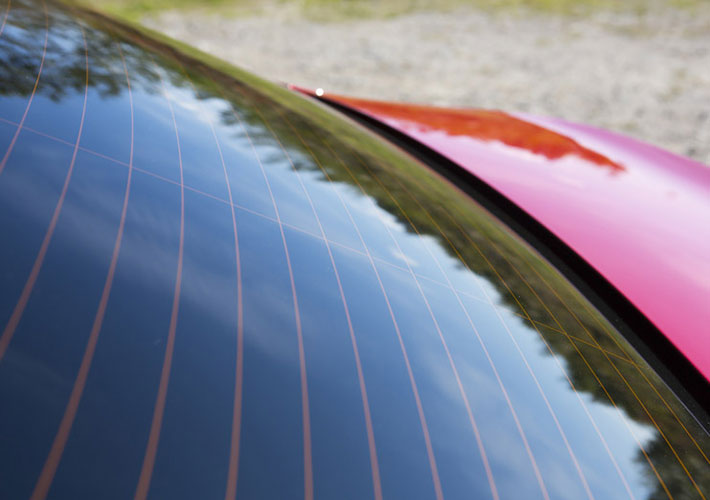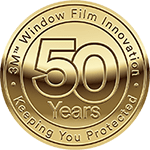What Are North Carolina Tint Laws?

What Are NC Tint Laws?
In North Carolina, window tint is determined by Visible Light Transmission (VLT). In other words, the percentage of light allowed to pass through the window and into the vehicle. NC tint laws vary depending on the vehicle type and window location (windshield, front, back, rear).
What Percentage of Tint is Illegal in NC?
In North Carolina, passenger vehicles must have a VLT of 35% on all windows. Windshields may only have tint on the top 5 inches (AS1 line) and must not be reflective. Truck, SUV, and Vans must have a VLT of 35% on front windows and can have any darkness on the back and rear windows. North Carolina allows reflective tint, however, windows must be no more than 20% reflective.
| Vehicle Type | Windshield | Front Sides | Rear Sides | Rear Windshield |
| Passenger | No Tint Below AS1 Permitted | 35% net VLT | 35% net VLT | 35% net VLT (cannot cover brake light) |
| Truck, SUV, & Van | No Tint Below AS1 Permitted | 35% net VLT | No restriction | No restriction |
| Limousines | No Tint Below AS1 Permitted | Factory Only | No restriction | No restriction |
| Commercial Vehicles | No Tint Below AS1 Permitted | 70% net VLT | No restriction | No restriction |
Free Estimate or call (910) 218-9955
How Does Tint Percentage Work?
Visible Light Transmission, or VLT, is determined by the percentage of light allowed to pass through from the exterior side of a window. The lower the VLT percentage, the darker the tint of the window. For example, a car window with a VLT of 35% will block 65% of visible light from passing through.
What Percentage VLT is Factory Window Tint
Most modern vehicles come with a small amount of window tint, usually this number is around 75-85% VLT. So when you go to purchase aftermarket window film, be sure that you are compensating for the window tint that is already there when you choose your shade. Absolute Perfection’s Car Window Tinting service always checks these VLT levels for you to ensure the window film we apply is legal.
Tint Restrictions and Exemptions (Add bullet list?)
Illegal Tint Colors: Red, Amber, Yellow.
Reflective Tint: On any window the film cannot be more than 20% reflective.
Side Mirrors: If the rear windows are tinted then the vehicle must have two side mirrors.
Medical Waiver: If you suffer from a medical condition that requires additional UV protection, you may qualify for a medical waiver that will exempt your vehicle from standard tint laws. You must have an authorized waiver form signed by a North Carolina Physician. To obtain a permit, an applicant shall apply in writing to the Drivers Medical Evaluation Program and have his or her doctor complete the required medical evaluation form provided by DMV.
What Happens If I am Caught With Illegal Tint?
The chances of being pulled over purely for your window film is pretty low, unless you have some sort of outrageously illegal film. So if you have applied some sort of darker-than-advised window tint to your vehicle, a safe bet would be to, you know, obey the rules of the road. If you are pulled over, though, it would be wise to not give the officer any reason to want to inconvenience you with a repair order.
What is a repair order?
Repair orders are distributed by law enforcement officers that require drivers to have certain unsafe or prohibited features fixed or removed from a vehicle. Not complying with repair orders can result in large fines and suspensions. Neither of us want to spend a Saturday removing window film, so the best option is to simply obey the rules. There are plenty of legal options that will fit your comfort and styling needs at AP Car Window Tinting.
Window Tinting Features, Products, & Benefits
Request an Estimate
Request an estimate for residential or commercial window tinting in Wilmington, Jacksonville and surrounding areas in North Carolina. Let us know what products or services you are interested in and one of our window tint specialists will be in touch.



